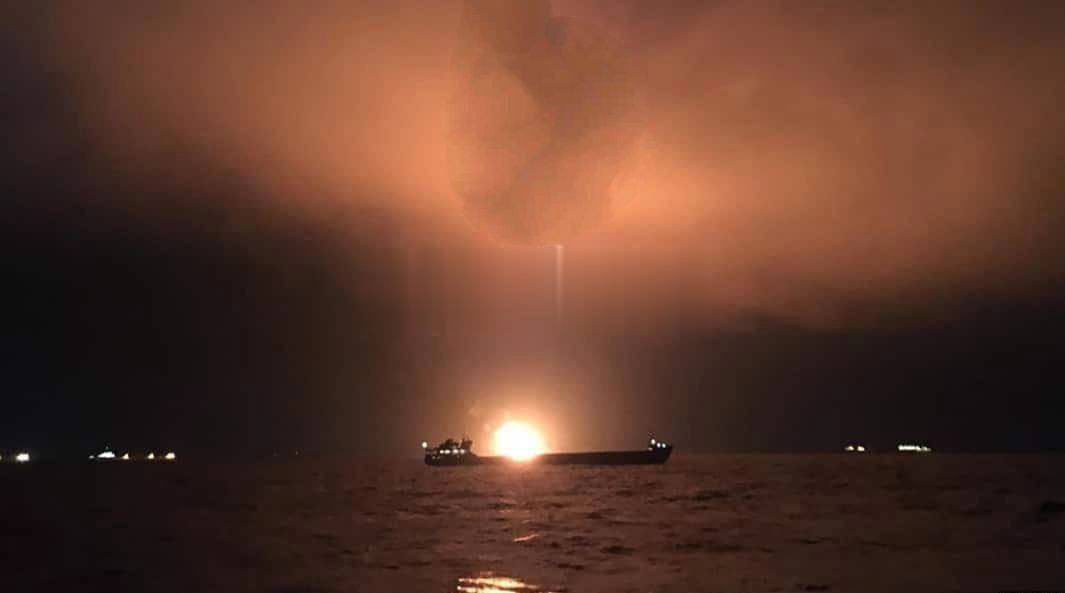Naval Drone Hits Russian Military Tanker: Navigating the Complexities of Maritime Security

In a recent turn of events that has sent ripples through the international maritime community, a naval drone strike hannened on a Russian military tanker in what appears to be a deliberate act of aggression. The incident underscores the evolving landscape of maritime security, where unmanned technologies are playing an increasingly pivotal role. As nations grapple with the implications of this incident, questions about responsibility, accountability, and the future of naval warfare arise.
The Incident Unfolds: Naval Drone Strike
The incident occurred in the waters of the Black Sea, a region that has witnessed heightened tensions in recent years due to geopolitical rivalries and territorial disputes. The Russian military tanker, which was navigating through this contested area, reportedly came under attack from an unidentified naval drone. Preliminary reports suggest that the drone was armed and targeted the vessel with precision.
The strike on a military tanker raises several critical concerns. Military tankers play a crucial role in maritime operations, ensuring the replenishment of naval vessels at sea. Targeting such a vessel not only poses a direct threat to the safety of the crew but also impacts the logistical capabilities of the nation’s naval forces.
The Role of Naval Drones
Naval drones, often referred to as Unmanned Surface Vehicles (USVs) or Unmanned Underwater Vehicles (UUVs), have rapidly gained prominence in modern naval warfare. These autonomous or remotely operated systems offer a range of capabilities, from surveillance and reconnaissance to mine clearance and even offensive actions. The incident involving the Russian military tanker highlights the growing significance of these technologies in shaping the dynamics of maritime security.
Naval drones provide nations with the advantage of conducting operations in contested or risky areas without risking the lives of human personnel. They can gather intelligence, monitor maritime traffic, and engage in offensive actions if required. However, their use also presents ethical and legal challenges, particularly in scenarios where their actions lead to unintended escalations.
Geopolitical Ramifications
The incident has sparked a diplomatic row, with Russia vehemently condemning the attack and demanding a thorough investigation. The international community is closely watching the developments, as the incident has the potential to exacerbate existing tensions in the region. The use of naval drones to target a military vessel raises questions about the rules of engagement in maritime conflicts and the appropriate response mechanisms.
One of the challenges lies in determining the responsible party behind the attack. The autonomous nature of some naval drones makes it difficult to attribute blame directly. Additionally, the lack of standardized regulations for the use of naval drones in international waters complicates the process of addressing such incidents.
Navigating the Legal Quagmire
The incident also underscores the need for clear and universally accepted guidelines governing the use of autonomous naval technologies. The United Nations Convention on the Law of the Sea (UNCLOS) provides a foundational framework for maritime activities, but it doesn’t comprehensively address the use of unmanned systems. As technology evolves, international law must adapt to encompass these advancements.
Key issues to consider include defining the rules of engagement for naval drones, establishing mechanisms for attribution and accountability in case of incidents, and ensuring that the use of unmanned systems complies with international humanitarian law. The complexity of these challenges highlights the urgent need for collaborative efforts among nations to address the legal gaps surrounding naval drones.
The Path Forward
As the incident involving the Russian military tanker reverberates across the international stage, it serves as a wake-up call for the global community. The integration of naval drones into maritime operations is irreversible, and the implications of their use are far-reaching. To prevent similar incidents in the future and mitigate the risks associated with unmanned technologies, nations must engage in constructive dialogue and develop comprehensive guidelines for their use.
The incident also underscores the importance of investing in diplomacy and conflict prevention. Transparent communication channels, crisis management protocols, and mechanisms for de-escalation are critical in avoiding unintended conflicts arising from technological misunderstandings or misjudgments.
In a rapidly evolving world where technology is reshaping traditional power dynamics, the incident involving the Russian military tanker underscores the need for adaptability and foresight. As naval drones continue to reshape maritime security, nations must collaboratively navigate the complexities of this new era while upholding the principles of peace, cooperation, and international law.
Click here to join our Telegram chanel
You will get information, news, and support related to Merchant Navy.
